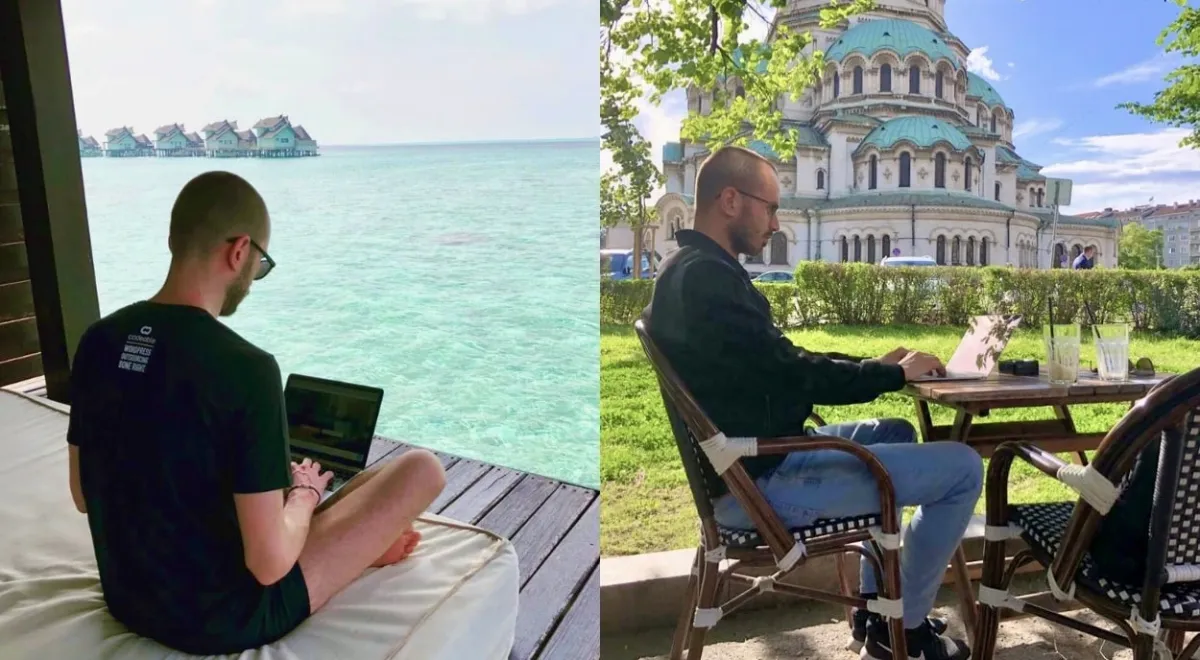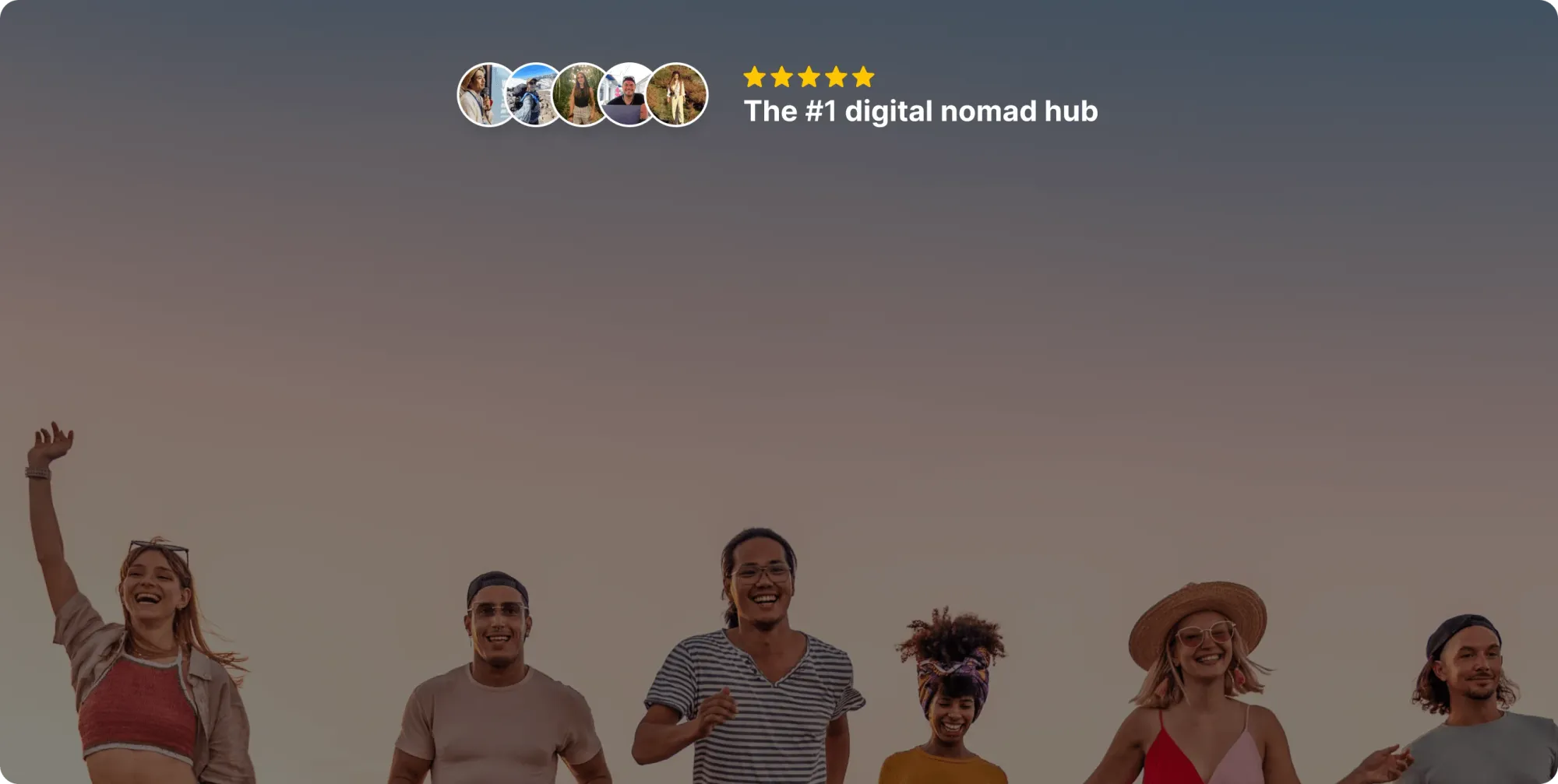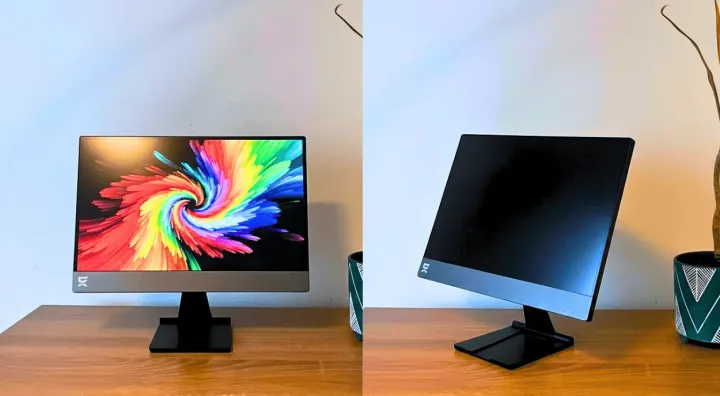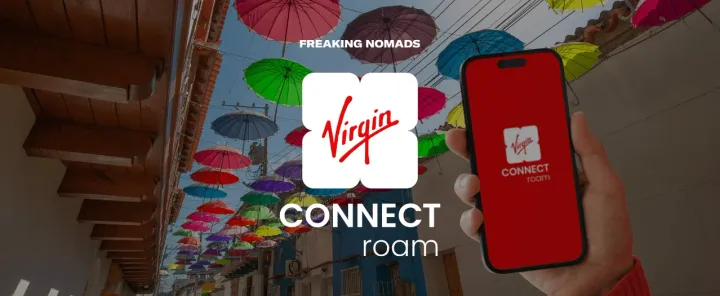How to Become a Digital Nomad as a Software Engineer

Digital Nomads work from their laptop, we all know that! But did you know that being a "Software Engineer" is one of the most popular jobs among nomads? I think this is not surprising at all, because it provides the perfect balance between freedom, flexibility, and a good salary.
On top of that, despite all the rumors about AI replacing developers, I think the demand is still very high as today's world runs on code, servers, and user interfaces… and apparently, we need people to build all of that.
One day, someone told me programmers are like today's super-heroes, holding the keys and building the places where people spend a big part of their lives. My answer was: "We are more like bricklayers than, just working from the beach sometimes".
Whether you consider software engineers super-heroes, bricklayers, or anything else in between, in this guide, we will see how you can build a career in programming and how it can play well with a nomadic life.
What is a Software Engineer?
Software Engineering is a whole universe inside two words, and it includes a variety of different areas. It's important to understand them well to choose the best career path based on your skills and personal attitude.
The most popular specializations are:
- Frontend Engineer – Specializes in building the parts of a website or app that users interact with, using HTML, CSS, JavaScript, and frameworks like React or Vue.
- Backend Engineer – Focuses on server-side logic, databases, and APIs, typically using languages such as Python, Java, or Node.js.
- Full-Stack Engineer – Proficient in both frontend and backend development, capable of building complete web applications from end to end.
- DevOps Engineer – Works on automating deployments, managing cloud infrastructure, and maintaining development pipelines using tools like Docker, Kubernetes, and CI/CD.
- Mobile Engineer – Builds apps for smartphones and tablets, either natively with Swift or Kotlin, or using cross-platform frameworks like Flutter or React Native.
- Machine Learning / AI Engineer – Develops intelligent systems and predictive models using tools like TensorFlow and PyTorch, with a strong background in data science and algorithms.
It’s important to consider the most of these paths are interoperable, for example I personally started as a Full Stack Engineer - which I still consider the easier way to enter the market and acquire customers - then I transitioned to Backend Engineering following my passion for processes, numbers and automation, and nowadays I landed in software security, a love I discovered along the way.
Most software engineers have a specialization, but it is important to have an understanding of the other areas to work well in teams, understand the big picture, and deliver more value.
What Does a Software Engineer Do?
Well, the answer to this question really depends on your chosen path!
As a Frontend Engineer, you will be probably finding yourself translating Figma interfaces into front end functional code; as a Backend Engineer you may spend your day automating data processes and designing scalable systems to handle transactions for the next billion dollar startup; as a DevOps specialist, you will take care of the infrastructure that will run both front and back end.
But in all these scenarios, you will have to write code, a lot of code. So, make sure writing code is something challenging and stimulating for you, because that will be a big part of your working routine.
Another thing to consider while choosing the type of software engineer you want to become is whether you wanna be a freelancer or work for a company. This is important because it is much easier to win customers as a freelancer frontend/backend engineer or as a full-stack developer, because that's what small-medium businesses look for.
On the other hand, it's way more rare that companies need a freelancer DevOps, or a Machine Learning Freelance Engineer, which are career paths more suitable for big-corp life. There are exceptions, of course, but this is the general rule.
Nomading + Coding, does it work well?
In my opinion, software engineering is one of the most nomadic-friendly professions, but it needs to be well-planned! As a freelance software developer myself, I try to work asynchronously with my clients, relying mainly on email communication, and I am very transparent about my location and my current timezone. As long as I deliver quality code, on time and on budget, they are very happy wherever I am.
Of course, things may be different if you work as an employee and have specific timeframes you have to be available. It is not impossible to organize, but maybe you don't wanna find yourself in Bali while working 9-5 for the East Coast in the US (which of course, is exactly what my roommate was doing, working at night and ruining my sleep). But I had many friends in Vietnam working 9-5 for European companies who were very happy to have the morning free and work afternoon until evening!
Working for an employer still has many advantages, like a fixed income and less stress, but sometimes it is less flexible than freelancing, and this may be another critical choice for your career path.
How to become a Digital Nomad Software Engineer?
Becoming a Software Engineer is a journey of a lifetime; it can get you very far and be really fulfilling, but it also requires a good amount of preparation.
My first step to build the basics would be to start taking some free courses on one of the many awesome resources available:
- https://cs50.harvard.edu/x/ - The state-of-the-art to build your computer science foundation.
- https://www.codecademy.com/ - Hands-on coding platform, really recommended (I studied here a lot)
- https://www.freecodecamp.org/ - Lots of materials to study, especially if you like videos.
- https://exercism.org/ - Also hands-on coding and many languages available.
- https://www.theodinproject.com/ - Oriented on curriculum and career building.
They all have pre-defined paths to help you orient yourself in the labyrinth of programming languages and specialities.
If you need a bit more guidance, you can evaluate coding bootcamps, which usually offer a more personalized experience but come at a price. I never took bootcamps, but I’ve heard good words about:
- https://www.appacademy.io/ – Zero upfront cost (ISA model), highly career-focused and rigorous for full-stack devs.
- https://www.lewagon.com/ – Globally recognized, great for web dev and data science, with immersive and community-driven learning.
- https://flatironschool.com/ – Strong mentorship and job support, great for software engineering, data science, and cybersecurity.
- https://www.springboard.com/ – Flexible, mentor-led bootcamp with a job guarantee and solid data science + UX tracks.
- https://microverse.org/ – Fully remote, peer-driven, and built for international students aiming for global tech careers.
But remember, the most important part of your education as a software engineer is building a portfolio. This is the golden rule: you only learn programming while writing code, so do it! Get creative, build a booking system for your local favorite cafe, redesign the interface of your favorite app, get your hands dirty, and collect your work on GitHub.
This will not only serve you as training, but it’s also the most important part of your CV when you are looking for a job; this is what your future employer will look at to evaluate your skills.
Finding a job as a Software Engineer?
Speaking about finding a job, you are in luck: nowadays, the internet is full of good opportunities and websites designed to match the right software engineer with the right company. I took my first steps as a freelance developer on Odesk and Elance, which today merged into a single platform - https://upwork.com/ - which is probably the biggest marketplace for remote workers on the globe.
While I think Upwork is still a good place to get started, it is also very competitive now. Similar to Upwork, you can check:
- https://www.fiverr.com/ – More gig-based and beginner-friendly, ideal if you want to offer specific coding services.
- https://www.freelancer.com/ – Large marketplace with tons of listings, but competitive — good for building experience.
Once you develop some stronger skills, you may want to start looking into more specialized platforms to find better clients, stand out and earn more money:
- https://www.codeable.io/ – Specialized in WordPress devs; high-paying, client-vetted jobs for experienced freelancers. (I built my career on Codeable)
- https://arc.dev/ – Curated remote jobs for developers; formerly CodementorX, focused on long-term freelance and contract work.
- https://www.toptal.com/ – High-end platform for experienced devs; tough screening, but great pay and serious clients.
And yet, if freelancing is not your path and you prefer looking for a more stable job, maybe a full-time remote work, you may want to browse:
- https://www.remoteok.com/ – Constantly updated remote job board, especially strong for tech roles and startups.
- https://www.weworkremotely.com/ – One of the top remote-only job boards with a strong dev and engineering section.
- https://www.flexjobs.com/ – Curated remote and flexible jobs across industries; subscription required, but high quality.
- https://remotive.io/ – Remote jobs across startups and tech companies; clean UI and easy to search for full-time roles.
The sites I mentioned are all websites I have some form of experience with, directly or through friends. But this is an ever-evolving market, and I am sure at the time of writing, there are new ones out there. Get curious, do a Google search, and find new opportunities, that is also a precious skill!
Why become a Software Engineer?
If you have to take away only one thing from this blog post, let it be this one: do not become a software engineer to become a digital nomad; become a software engineer for love of coding.
This is what really matters, and maybe is something valid for other jobs as well. Your job is supposed to give you challenges, be fulfilling and stimulate you over time; not just be an entry point into the digital nomad life.
Coding is a beautiful skill that will give you the power to build anything you have in mind; that is the best motivation. Then, of course, if you can deploy your code from Playa del Carmen in Mexico... why not :)
Are You Ready to Become a Digital Nomad Software Engineer?

Join our global
digital nomad community
Join us for free
Freaking Nomads is supported by you. Clicking through our links may earn us a small affiliate commission, and that's what allows us to keep producing free, helpful content. Learn more




 Travel tips, hacks, and news
Travel tips, hacks, and news Exclusive travel discounts
Exclusive travel discounts Offers and promotions
Offers and promotions Digital nomad inspiration
Digital nomad inspiration Latest articles form our blog
Latest articles form our blog